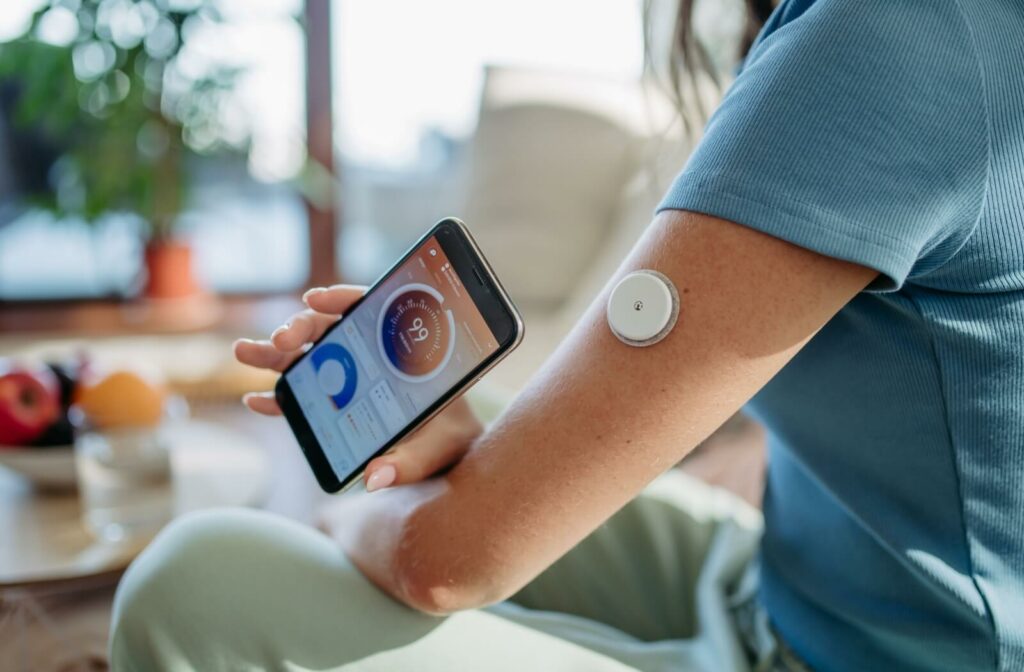Many people who are prescribed eyeglasses for the first time ask a familiar question: “If I start wearing glasses, will my vision get worse?” It’s an understandable concern, especially if you’ve heard stories of people who needed stronger prescriptions over time. The idea that eyeglasses can weaken your eyes has become a widespread myth.
In reality, changes in vision are usually linked to natural factors like age, genetics, or eye conditions, not the glasses themselves. Eyeglasses simply provide clearer vision by adjusting the way light enters your eyes. They don’t cause vision to deteriorate, though your prescription may change over the years for other reasons.
How Eyeglasses Work
Eyeglasses correct refractive errors, which are caused by the way light focuses inside your eyes. Instead of focusing directly on the retina, light in an eye with refractive error falls in front of or behind the retina, leading to blurry vision.
Eyeglass lenses bend light in a way that compensates for this misfocused light. This provides sharper vision without altering the structure of the eye.
Type of refractive error include:
- Myopia (nearsightedness): Difficulty seeing objects at a distance
- Hyperopia (farsightedness): Trouble seeing objects up close
- Astigmatism: Blurred vision caused by an irregularly shaped cornea or lens
- Presbyopia: Age-related difficulty focusing on near objects
Why Prescriptions Change Over Time

Even though glasses themselves don’t make your eyes weaker, many people notice that their prescriptions change as they age. This is natural and is usually related to the development of the eyes or gradual changes in vision.
Some common causes of changes to vision include:
- Childhood & adolescence: During growth years, the eyes can change shape, often leading to shifts in nearsightedness or farsightedness.
- Adulthood: Some refractive errors stabilize, but new issues, like presbyopia, appear as we age.
- Health conditions: Diabetes, high blood pressure, or other health concerns can influence vision.
- Eye conditions: Cataracts, glaucoma, and macular degeneration may also impact eyesight over time.
These changes can require an updated prescription, but the glasses themselves aren’t the cause. They simply help you adapt to the changes in your vision.
Why the Myth Persists
If eyeglasses don’t make vision worse, why do so many people believe they do? Much of it comes down to timing.
The Timing of Prescription Changes
For example, someone may get glasses for mild nearsightedness and enjoy clearer vision. A few years later, they may feel their glasses are less effective. To them, it might seem like the glasses “weakened” their eyes, when in fact, their vision changed naturally, and their prescription simply needs adjusting.
The Adjustment Period
Another reason is the adjustment period. When you start wearing glasses, your brain quickly adapts to clearer vision. If you take your glasses off, your natural eyesight feels blurrier by comparison, even though it hasn’t actually changed. This contrast can give the impression that glasses made your eyes weaker, when in reality, they just made you more aware of the difference between corrected and uncorrected vision.
The Benefits of Wearing Eyeglasses
Instead of harming vision, eyeglasses play an important role in daily comfort and long-term eye health. Clear vision makes everyday activities like driving, reading, and working more comfortable and safe. For children, wearing the correct prescription is especially important for learning and development.
Benefits of eyeglasses include:
- Supporting clearer, more comfortable vision in daily activities
- Reducing eye strain during reading, screen use, and detailed work
- Supporting safe driving by improving distance vision
- Allowing children to participate fully in school and sports
By correcting refractive errors, glasses can also help reduce headaches or eye fatigue that sometimes result from uncorrected vision problems.
Alternatives to Eyeglasses
While eyeglasses are one of the most common tools for vision correction, they aren’t the only option. Depending on your needs and preferences, alternatives may include contact lenses, myopia control strategies for children, or refractive surgery such as LASIK.
Finding the Right Fit for Your Lifestyle
Each approach has its advantages and considerations, and your optometrist can help you decide what fits your lifestyle. Many people even use a combination, such as wearing contact lenses for sports and glasses for daily routines.
How to Take Care of Your Vision
Although glasses don’t make vision worse, there are steps you can take to support long-term eye health and comfort.
Healthy Habits for the Eyes
- Schedule regular eye exams to track changes in your vision
- Share any new symptoms, such as blurry spots or eye discomfort, with your optometrist
- Follow healthy lifestyle habits, like eating a balanced diet and managing screen time
- Protect your eyes with sunglasses that block UV rays
The Importance of Regular Eye Exams
Eye exams are especially important because some changes in vision are linked to eye diseases that may not show symptoms at first. Regular checkups help identify these issues early, making it easier to manage them effectively.
Talking to Your Optometrist
If you’re worried about wearing glasses or noticing changes in your prescription, a good step can be to talk with your optometrist. They can explain what’s happening with your eyes and provide options tailored to your needs. Sometimes, adjusting your prescription or switching to a different type of lens can make a big difference in comfort.
Eyeglasses & Long-Term Vision
Wearing glasses does not make your vision worse. Instead, they help you see more clearly and comfortably, supporting your daily life and overall well-being. Changes in prescription are usually the result of natural development, age, or health factors, not your eyeglasses.
At Maple Ridge Eye Care, we have friendly and knowledgeable optometrists who work with patients of all ages to provide thorough exams, vision correction, and personalized advice. If you have concerns about your vision, book a comprehensive eye exam and we can help give you clarity and peace of mind.


